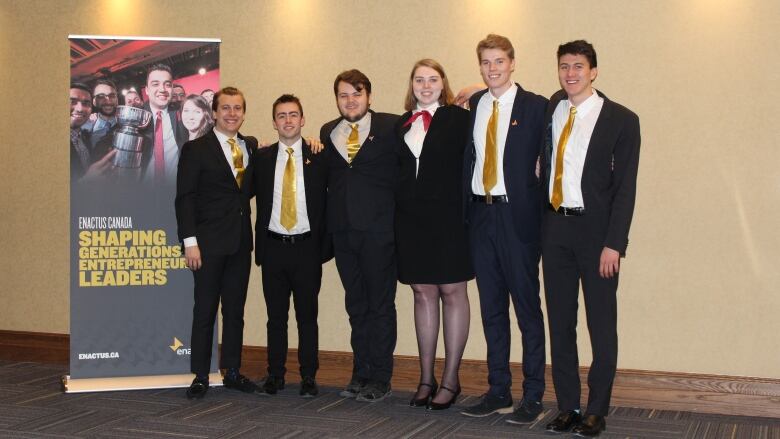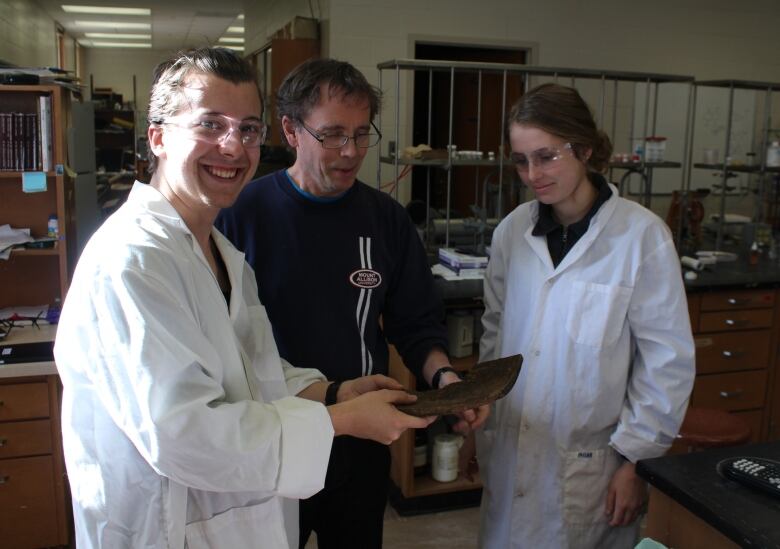Students try to give lowly potato peel a future in furniture
Enviroot, made up of six Mount Allison University students, gives food waste a purpose

A company started by six Mount Allison students sees a place for potato peels in furniture, flooring and ceiling tiles.
Enviroot's goal is to reduce waste by using food remains, especially potato peelings, to make a safe material for use in the home.
The company received a national business prize of $20,000 fromEnactus Canada, a student-led entrepreneurial organization, and the McCain Social Enterprise Project Partnership to get the project going thissummer.
"We use the potato peels that we get from McCain Foods here in New Brunswick in our particle board as a kind of filler," said Justin Trueman, Enviroot CEO and fourth-year biology student.
The potato peels are plasticized by melting them a little bit, and a bond between the potato peels' particles is created.
This allows them to bind products together without need of formaldehyde,which is the glues of some household furnishings, walls and stairs made from composite wood materials.
"You don't want to be exposed to that," said Trueman.
Potato peels and starch
"When we found out there was a partnership available through Enactus Canada and McCain Foods, we started thinking about how we can make something viable out of something McCain has to offer," Trueman said.
Trueman and five other members of the Enactus Mount Allison Club took potato peels and starch to the university's chemistry and biochemistry department.
"We were in there getting our hands dirty," Truemansaid. "We recruited a couple students to come on board and help us with our research."
Through bioplastics and plasticization, a fibreboard able to be commercialized was created.
"We have several prototypes right now, things you can hold and are hard," Trueman said. "They resemble fibreboard, they can be machined, drilled."
The perfect recipe

Enviroot is in the research and development stage, working toward a patent.
Chemistry students from Mount Allison are helping the Enviroot team with the research. Trueman is the only biology student on the team, while the rest are studying commerce and economics.
"Once we get our recipe finalized we can move closer to retail, to selling our product."
The $20,000 prize will allow the Enviroot team to buy apatent.
"Patents are super expensive," Trueman said."A lot of the resources we have will go towards this patent."
The ultimate goal
Trueman, who is fromTruemanville, a small town near Amherst, N.S.,said he never imagined he would end up being the CEO of a company when he decided to study biology.
He said the team wants to create a product people can have in their houses as an alternative to something that has formaldehyde in it.
"And, along the way, we want to take potato peels and food waste and give it something with real purpose."
Eventually, the team wants to have a manufacturing plants in Florenceville,where McCain Foods is located.
"That will be a huge boost to the economy there in the local area," said Trueman.
With files from Shift












_(720p).jpg)


 OFFICIAL HD MUSIC VIDEO.jpg)
.jpg)



























































































